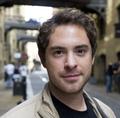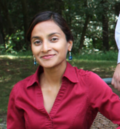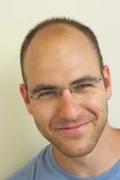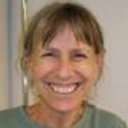Summer Faculty
|
|
Agata Bloswick, Senior Director, Clinical Project Management, Covance; PhD Candidate in Pharmacy, Jagiellonian University Bloswick is a Yale Bioethics Summer Program graduate of 2011. She is a PhD candidate focusing on improvement of Informed Consent Forms in Clinical Trials. She has 12 years of experience working in clinical trials of various indications on behalf of pharmaceutical and small biotech companies. She managed over 35 different trials in over 40 countries. Having worked on trials involving vulnerable populations, she is striving to achieve the highest ethical standards of the research she oversees. She was also a speaker at a UNESCO Chair in Bioethics conference. She teaches Project Management in Clinical Trials at the Faculty of Pharmacy of Jagiellonian University in Kraków, Poland. Interview: Agata Bloswick on Clinical Trials and Informed Consent |
|
Jonathan Borak, Clinical Professor of Epidemiology & Public Health and Clinical Professor of Medicine, Yale School of Medicine |
 |
Lori Bruce, Director, Sherwin B. Nuland Summer Institute in Bioethics; Director, Community Bioethics Forum, Program for Biomedical Ethics, Yale School of Medicine; Associate Director, Yale Interdisciplinary Center for Bioethics Lori is the Director of the Center’s Summer Institute in Bioethics and an Associate Director at the Interdisciplinary Center for Bioethics. She has over 15 years experience in bioethics especially as it relates to health and medical policy analysis. She has authored policy on scores of issues including pediatric organ donation after cardiac death, palliative sedation, infant safe haven laws, and doctor/patient social media communications. She has consulted for a member of President Obama’s Commission on Bioethics and has lectured worldwide including such places as Walter Reed National Military Medical Center, Monash University in Australia, the Centre for Values, Ethics and Law in Medicine at the University of Sydney, the Centre for Faith, Ethics and Society at University of Notre Dame Australia, Boston University School of Medicine, and Harvard University.
Lori serves on the Adult Ethics Committee and the Pediatric Ethics Committee of Yale-New Haven Hospital and is a founding member of Yale’s Repository IRB which reviews medical research relating to large-scale tissue and data repositories. She has also served on bioethics committees at Harvard, including the Cambridge Health Alliance and the innovative Community Ethics Committee and currently provides ethics consulting to Yale’s Gender Clinic, and is HEC-C certified.
A former Executive Director of the Connecticut Coalition to Improve End-of-Life care, Lori has served on state health department steering committees for Medical Orders on Life-Sustaining Treatment (“MOLST”) and advisory boards for vulnerable populations. She is Vice President of Community Voices in Medical Ethics (a nonprofit) and directs the Community Bioethics Forum at Yale Medical School’s Program for Biomedical Ethics which accepts consult requests from policy-makers and amplifies the voices and values of community members in health and medical policies. This group has examined the ethics of a wide range of policies including invasive pediatric procedures by physicians-in-training, end-of-life options for the developmentally disabled, infant safe haven laws, and brain death.
Lori’s graduate work is in both neuroimaging and bioethics with training and coursework from Harvard School of Medicine and Johns Hopkins, a Masters in Neuroimaging from Boston University School of Medicine, and Masters in Bioethics from the Icahn School of Medicine at Mount Sinai in New York.
Lori’s experience also includes extensive fMRI research on the neural mechanisms relating those who are prodromal to psychotic disorders, in a social neurosciences laboratory at Harvard University.
Lori has taught summer seminars in “Empathy and the Practice of Medicine” and “Neuroethics,” and greatly enjoys working with the students on career planning and their summer research initiatives. Her main interests include more fully including the voices of vulnerable populations in health policy and the inclusion of policy analysis in bioethics.
Her writing appears in the Huffington Post, The American Journal of Bioethics blog, The Hastings Center Report, neuroscience journals, and other sources in both academic journals and the popular media.
|
 |
R. Douglas Bruce, Assistant Professor of Medicine, Yale School of Medicine |
 |
Stephen Campbell, Assistant Professor of Philosophy, Bentley University |
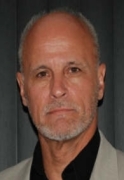 |
Joe Carvalko, Adjunct Professor of Law, Science, and Technology, Quinnipiac University Law School Joseph Carvalko is a teacher, writer and patent lawyer, with degrees in law, electrical engineering and the arts, who devotes his efforts to navigating the intersection of law, science and technology. He serves as adjunct professor and course creator of: Law, Science, Technology, at Quinnipiac University, School of Law. He’s a member of: IEEE, Society on Social Implications of Technology (Associate editor of Society and Technology); ABA, Section of Science & Technology Law, (former editorial board, SciTech Lawyer; former chair, Behavioral Sciences Committee); member, Yale Community Bioethics Forum on Biomedical Ethics, Yale School of Medicine; attendee, Yale Technology and Ethics Study Group. He has written books and articles on the subject of science and technology, holds 13 patents, some jointly, and as researcher and engineer, worked in biomedical engineering, radar, optics, A.I. (pattern recognition), programming, and communications. Interview: Joe Carvalko on the Intersection of Law, Science, and Technology |
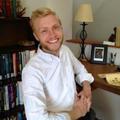 |
AJ Debonis, Adjunct Professor of Catholic Studies and Philosophy, Theology, & Religious Studies, Sacred Heart University AJ holds a BA in Philosophy from Eastern University, a dual MA in Theology and English Literature from Villanova University, and an MA in Religious Ethics from Yale Divinity School. He has taught courses on the Catholic intellectual tradition and world religions at Sacred Heart University, and currently teaches theology, philosophy, and ethics at the secondary school level. He is a 2015 graduate of the Sherwin B. Nuland Summer Institute, and lives in Brooklyn with his wife and daughter. Interview: AJ Debonis on Bioethics and Religion |
 |
Thomas Duffy, Professor Emeritus of Medicine and Founder of the Program for Humanities in Medicine, Yale School of Medicine |
 |
Lydia Dugdale, Associate Professor in the Section of General Internal Medicine and Associate Director of the Program for Biomedical Ethics, Yale School of Medicine Lydia S. Dugdale, MD, is an associate professor in the Section of General Internal Medicine and the associate director of the Program for Biomedical Ethics at Yale School of Medicine. Her teaching commitments at Yale include clinical medicine and general ethics to medical students and residents, and she is the director of a research ethics course for doctoral students. Lydia’s scholarship focuses on biomedical ethics, with particular emphasis on care at the end of life. She has edited and published widely on bioethics topics, especially end-of-life care. Lydia has done interviews with NPR and on television with i24 News, and has received grant funding from the John Templeton Foundation. Lydia is currently completing a master’s degree in philosophical ethics at Yale Divinity School. She received her medical degree from the University of Chicago’s Pritzker School of Medicine and completed her clinical training at Yale-New Haven Hospital. She practices primary care medicine with Yale Internal Medicine Associates.
|
|
|
Sheena M. Eagan, Adjunct Assistant Professor California State University East Bay Sheena Eagan received her Ph.D. in the Medical Humanities from the Institute for the Medical Humanities at the University of Texas Medical Branch, specializing in medical ethics and the history of medicine. Prior to doctoral studies, Dr. Eagan completed a Master of Public Health at the Uniformed Services University. Her research and teaching focus on ethics with a specialization in medicine and a subfield focus of military medical ethics. Interview: Sheena Eagan on Military Medical Ethics and Medical Humanities |
|
|
Brian Earp, Associate Director of the Yale-Hastings Program in Ethics and Health Policy and a Research Fellow in the Uehiro Centre for Practical Ethics, University of Oxford. His interests include unconscious mental processes, the sociology of scientific practice, and subjects including addiction, identity and morality; the ethics of circumcision; and enhancement. Having received his undergraduate degree in cognitive science from Yale, a master’s degree in psychology from the University Oxford, and a second master’s degree in the history and philosophy of science from the University of Cambridge, Brian is now pursuing a joint Ph.D. in philosophy and psychology. |
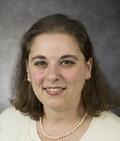 |
Rebecca Feinberg, JD, MBe, MS is a Teaching Associate Professor in the Department of Health Sciences and a Lecturer in Law at DePaul University College of Law at DePaul University. She teaches healthcare policy, healthcare law and bioethics. Her field is healthcare policy in women’s health with a focus on reproduction. In addition, she works on resource allocation in the developing world with a focus on preventive care and has produced multiple guidance documents published by the World Health Organization. During her time at DePaul, Professor Feinberg has served as the Wicklander Fellow 2020-2021, funded by The Driehaus College of Business’s Institute for Business and Professional Ethics. She served as a Fellow in Bioethics at the Center for Bioethics of Harvard Medical School 2017-2018 and a Writing Fellow at the Center for Bioethics of Harvard Medical School 2020-2021. In 2018 she completed the Clinical Ethics Immersion Program at the Cleveland Clinic. In 2019 she served as a Visiting Scholar in the Yale University - Hastings Center program.
Professor Feinberg graduated from the University of Pennsylvania Law School and has a Master of Bioethics from the University of Pennsylvania Medical School and a Master of Biotechnology, specializing in Regulatory Affairs, from Johns Hopkins University. She earned her BA summa cum laude from Yeshiva University, where she was a member of the Alpha Epsilon Delta Honor Society. She is proud to be a Nationally Registered Emergency Medical Technician at the Paramedic level.
|
|
|
Ramona Fernandez, Adjunct Assistant Professor, Counselling Psychology at Western University, Psychotherapist- Private practice at Rebirth Wellness Center, Vice-President, Association of Death Education and Counseling Ramona is currently a faculty member and researcher at Western University in Canada and serves as Vice-President on the board of directors for the international Association of Death Education and Counseling. She is clinical counsellor/psychotherapist by profession with a Master’s degree in Counselling Psychology, Certificate in Grief and Bereavement and an interdisciplinary PhD in Health Professional Education. She also holds an international certification and Fellow in Thanatology with specialization in bereavement counselling for reproduction and perinatal loss. She is a graduate of Yale University’s Bioethics Summer Institute (2013), was a Visiting Scholar at The Hastings Center and did a clinical ethics fellowship at St. Joseph’s Healthcare London & London Health Sciences Center in Canada and served previously on the Perinatal Ethics Council at St. Joseph’s. Her clinical, academic and research work spans the disciplines of counselling psychology/social work, thanatology, reproductive medicine, bioethics and biopolitics |
|
|
Joseph Fins, E. William Davis, Jr., M.D. Professor of Medical Ethics, Professor of Medicine, Professor of Public Health, and Professor of Medicine in Psychiatry, Weill Cornell Medical College; Director of Medical Ethics & Attending Physician, New York Presbyterian Hospital–Weill Cornell Medical Center; Co-Director of the Consortium for the Advanced Study of Brain Injury, Weill Cornell & Rockefeller University; Dwight H. Terry Visiting Scholar in Bioethics, Yale University |
|
|
John Grim, Senior Lecturer and Research Scholar, School of Forestry & Environmental Studies, Yale University |
|
|
Michael Gusmano, Research Scholar, Hastings Center; Associate Professor of Health Policy, Rutgers University |
  |
Courtney Hempton, PhD Candidate in Social and Political Philosophy, Ethics, and Health Psychology, Monash Bioethics Centre, Monash University Courtney holds a Master of Bioethics and is a Teaching Associate and Research Assistant at the Monash Bioethics Centre at Monash University. She has particular interest in the regulation of dying and death, and her doctoral thesis focuses on the emergence of law and policy regarding ‘voluntary assisted dying’ in the Australian state of Victoria. Courtney completed undergraduate and honours degrees in behavioural science, and has previously been engaged as a researcher across the health sector, conducting empirical studies on aspects of dementia care, elder abuse, palliative care, and psycho-oncology. Courtney serves on the Monash Health Clinical Ethics Committee, the Natural Death Advocacy Network Executive Committee, and the Student and Early Career Researcher Stream Committee of the Australasian Association of Bioethics and Health Law. Courtney is currently completing her PhD at Monash. Connect with Courtney on Twitter @CourtneyHempton. |
 |
Jennifer L. Herbst, Professor of Law and Medical Sciences, Quinnipiac University School of Law and Frank H. Netter MD School of Medicine. Dr. Herbst serves as a community member on the adult ethics committee for Yale-New Haven Hospital and the Human Subjects Committee for Yale University’s Human Research Protection Program. Prior to joining the Quinnipiac faculty, she taught at Temple University’s Beasley School of Law as an Abraham L. Freedman fellow. Earlier in her career, she worked as defense counsel for hospitals, health care providers, and pharmaceutical companies at a law firm in Philadelphia.
Her research focuses on the intersection between health, ethics, law, and money. Her scholarship has been published in the Journal of Law, Medicine & Ethics, the Hastings Center Report, Public Health Reports, Temple Law Review, BMC Medical Ethics, and Health Matrix. Her current research projects include examining when, if ever, it may be ethical and/or good policy for a physician, hospital, or health care system to “fire” a patient, the ethics of using microbiota transplants for antibiotic stewardship purposes, and the ethical framework for loved ones making health care decisions for others.
|
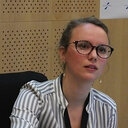 |
Laure Hoenen, Assistant Lecturer in History of Biology and PhD Candidate in History of Science, Strasbourg University Laure Hoenen is a 2013 graduate of Yale’s summer institute, and has been a seminar leader in the program since 2016. She is currently a PhD candidate in history of science and an assistant lecturer in history of biology at the Faculty of Life Sciences at Strasbourg University in France. Her fields of expertise include animal ethics, the history of animal experimentation and, in particular, the history of primatology. Laure’s dissertation is based on work done at the Primatology Center of Strasbourg. Since 2014 Laure has been a member of an animal ethics committee for animals used for scientific purposes (the French equivalent of an IACUC). She is also co-creator and member of Ethosph’R, an association dedicated to research animal rehoming and rehabilitation. Interview: Laure Hoenen on Animal Ethics and New Course in Science Fiction & the Other |
 |
Jack Hughes, Professor of Internal Medicine, Yale School of Medicine; Associate Director, Program for Biomedical Ethics, Yale School of Medicine |
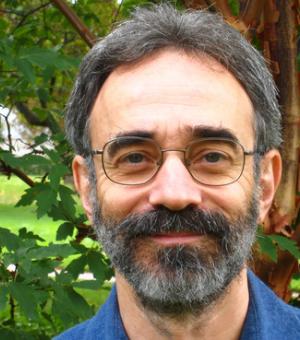 |
Shelly Kagan, Clark Professor of Philosophy, Yale University |
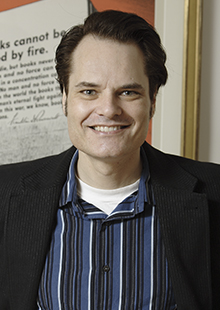 |
Dan Kahan, Elizabeth K. Dollard Professor of Law, Yale University |
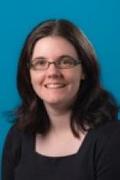 |
Evie Kendal, Lecturer in Health, School of Medicine, Deakin University Evie Kendal is a Lecturer in Bioethics and Health Humanities at the School of Medicine at Deakin University in Australia. She holds a Master of Bioethics, an Honours degree in English literature and cultural studies and a Bachelor of Biomedical Science. Her doctoral studies focused on feminist bioethics and the representation of emerging reproductive biotechnologies in literature and film. Evie is the former human research ethics committee coordinator of a private hospital in Melbourne and teaches bioethics to philosophy, health, biomedical and medical students at Deakin. Interview: Evie Kendal on Hostile Architecture and Genetic Ethics |
 |
Kaveh Khoshnood, Associate Professor of Epidemiology and Director of BA-BS/MPH Program, Yale School of Public Health |
.jpg) .jpg)  |
Owen C. King, PhD Owen King is a postdoctoral researcher in the Department of Philosophy of the University Twente. His research spans theoretical issues in metaethics and practical issues in the ethics of technology, with a special focus on well-being and the ethical development and use of artificial intelligence. He collaborates with organizational psychologists, data scientists, and human resources professionals, to apply data analytics for discovering new ways to promote the well-being of employees of large organizations. Before joining the University of Twente, Owen taught at Oberlin College. He wrote his doctoral dissertation in philosophy at The Ohio State University. While at Ohio State, Owen conceived and designed the Philosophy Department’s first course on computing ethics. |
  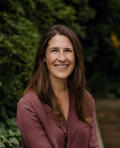 |
Natalie Kofler, PhD Natalie Kofler is a trained molecular biologist and the founding director of Editing Nature, a global initiative to steer responsible development and deployment of environmental genetic technologies. Natalie’s work navigates the technical, ecological, and ethical complexity of gene editing applications designed to impact wild species, such as CRISPR-edited mosquitos to prevent malaria transmission, genetic strategies to eliminate invasive species, or the use of CRISPR gene editing to promote species resiliency to changing climates. She builds deliberative platforms that engage diverse expertise, worldviews, and historically marginalized voices to foster effective public engagement, promote wise innovation, and inform sensible policy. Natalie worked in biomedical research where she actively used genetic technologies like CRISPR before founding Editing Nature to become a leading voice in CRISPR and synthetic biology ethics. She has authored numerous publications on the topic, served on expert panels, and contributes to UN mandated documents. Her work has been highlighted by NPR, CBC radio, Pacific Standard Magazine, and National Geographic. Natalie served as a visiting scholar at the Hastings Center and collaborates with the Yale Program in Biomedical Ethics. She received her PhD in cellular, molecular, and medical biosciences and MS in human nutrition and metabolic studies from Columbia University and her BS in human anatomy and cell biology from McGill University. |
|
|
Susan Kopp, Professor Emeritus of Health Sciences, Veterinary Technology Program, LaGuardia College, CUNY; Affiliated Scholar, Yale Interdisciplinary Center for Bioethics Dr. Susan Kopp is a recipient of the New York State Humane Association Award for Exemplary Veterinary Service, and also served as veterinarian for the New York City animal shelter system, where her work included areas related to public health and the human-animal bond. A past chair of Yale’s Interdisciplinary Center for Bioethics Animal Ethics study group, Sue developed and taught our Summer Institute’s first animal & veterinary ethics seminar in 2010. Her personal and professional commitments include both efforts around fruitful dialogue on challenging issues of faith in society, and interest in the interface between religion, ethics, animals, and the environment. Her collaborative work includes articles in The Hastings Center Special Report, the Journal of Moral Theology, America magazine, and Living City magazine. Sue holds a BS in biochemistry from Virginia Tech, doctor of veterinary medicine from Purdue University, and advanced coursework in religious studies. Interview: Susan Kopp on Animal Ethics and Inter-Religious Dialogue |
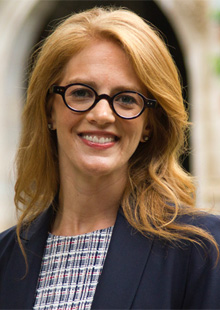 |
Katherine Kraschel, Executive Director of the Solomon Center for Health Law and Policy and Visiting Clinical Lecturer, Yale Law School |
 |
Olya Kudina, PhD in Philosophy, University of Twente Dr. Kudina’s PhD is in Philosophy of Technology from the University of Twente in the Netherlands. Her interests are in the mediating role of technologies in the morality of people. She has previously worked on the European Union research project in Belgium, exploring the ethical and social implications of a new security system. Before that, she worked in the Council of Europe in Ukraine, in the domain of personal data protection and privacy. Olya is an alum of the Summer Institute in Bioethics, having attended in 2017. Interview: Olya Kudina on Philosophy and Ethics of Technology |
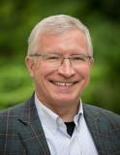 |
Stephen Latham, Director, Yale Interdisciplinary Center for Bioethics; Senior Research Scientist in Political Science, Chair of the Human Subjects Committee, and Co-Chair of the Embryonic Stem Cell Research Oversight Committee, Yale University; Lecturer, Yale Law School Steve has been Director of the Bioethics Center since 2011, having served as Deputy Director since 2008. For the previous nine years, he was Professor of Law and Director of the Center for Health Law & Policy at Quinnipiac University School of Law. Before entering academia full-time, he served as Director of Ethics Standards at the American Medical Association and as secretary to its Council on Ethical and Judicial Affairs. He was for several years a member of Connecticut’s Stem Cell Reseach Advisory Committee, and served for three years on the board of the American Society for Bioethics and Humanities, which gave him its distinguished service award. He has done clinical ethics consultation with the Pediatric Ethics Committee of Yale-New Haven’s Children’s Hospital; currently chairs Yale’s Human Subjects Committee (its social/behavioral IRB); and serves on the Medical Review Board of Connecticut’s Department of Children and Families. His 100+ publications on health law and bioethics have appeared in journals and law reviews including JAMA, NEJM, the American Journal of Law and Medicine, the Journal of Law, Medicine and Ethics, and the Journal of Legal Medicine. He has been book review editor of the American Journal of Bioethics, and is currently a contributing editor for the Hastings Center Report. His co-edited book, The American Medical Ethics Revolution (Johns Hopkins Univ. Press) was selected by Choice as one of the “top academic books of 2000.” |
|
|
Zohar Lederman, Center for Biomedical Ethics, National University of Singapore Zohar Lederman is a medical doctor and a bioethics PhD candidate at the National University of Singapore. His PhD focuses on the ethics of One Health. His other areas of interest include: end of life care, the dual loyalty dilemma, ethics of infectious diseases and public health ethics. Interview: Zohar Lederman on End of Life Care and Family Presence |
 |
Matthew Leisinger, PhD Candidate, Department of Philosophy, Yale University, Yale Graduate Fellow in Applied Ethics, Yale Interdisciplinary Center for Bioethics Originally from Canada, Matt completed a BA in Philosophy at The University of Western Ontario before entering the PhD program in the Department of Philosophy at Yale. Now in his 5th year at Yale, Matt is completing a dissertation on early modern theories of personhood and moral agency, focusing in particular on the views of John Locke and Ralph Cudworth. |
|
|
Jennifer Maas, Veterinarian, Montgomery Road Animal Hospital; Adjunct Teaching Faculty in Animal Ethics, Cummings School of Veterinary Medicine, Tufts University Dr. Jennifer Maas received her DVM from Cornell University in 1980. Since then she has been involved in active clinical work, practicing large animal and companion animal medicine and surgery at her veterinary practice in Southern Massachusetts. In 2016 she received a MS in Animals and Public Policy from the Cummings School of Veterinary Medicine at Tufts University. Particular areas of interest include animal consciousness, clinical behavior, quality of life issues and genetic manipulation of non-human lifeforms. Her work explores the intersection between social justice and animal ethics within various historical, cultural and environmental contexts. In addition to clinical practice, Dr. Maas is a guest lecturer at Tufts University and Salem University. She teaches animal ethics courses at Tufts’ Cummings School of Veterinary Medicine and Yale’s Summer Institute for Bioethics. Dr. Maas works with non-profit organizations to promote humane legislation and support community based animal care. She is a member of the Massachusetts Veterinary Medical Society’s Animal Welfare Committee, the Society of Veterinary Medical Ethics, and participates in the Animal Ethics Study Group, at the Interdisciplinary Center for Bioethics at Yale University. |
 |
Maurice Mahoney, Professor Emeritus, Co-Chair of the Embryonic Stem Cell Research Oversight Committee, and Executive Director of the Human Investigation Committee, Yale School of Medicine |
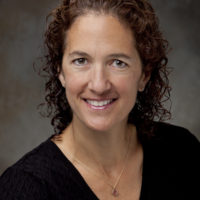 |
Evie Marcolini, Assistant Professor of Emergency Medicine and Neurology, Yale School of Medicine; Medical Director, SkyHealth Critical Care Evie Marcolini, MD is an Assistant Professor of Emergency Medicine and Critical Care. She has clinical appointments in the Department of Emergency Medicine and the Department of Neurology; and is core faculty in the Emergency Department as well as the Division of Neurocritical Care and Emergency Neurology. She has board certifications in Emergency Medicine and Neurocritical Care. Dr. Marcolini is the Medical Director for the new SkyHealth Critical Care helicopter transport service that is shared between Yale-New Haven Health Center and Northwell Health System. She also has a special academic interest in Critical Care and end of life issues, and is a member of the Yale-New Haven Hospital Ethics Committee. She is a member of the American College of Critical Care Medicine Ethics committee, and teaches an ethics seminar annually for the Sherwin B. Nuland Summer Institute in Bioethics. She has been active as faculty for Wilderness Medical Associates International since 1992, and teaches wilderness medical courses to medical students, residents, faculty and allied health professionals nationally and internationally. Interview: Evie Marcolini on Ethics of Neuro Science and Ethics of Emergency Medicine |
 |
Ellen Matloff, President and CEO, My Gene Counsel, LLC; Founder, Cancer Genetic Counseling Program, Yale School of Medicine |
   |
Jeff Matsler, Clinical Ethicist,Wellstar Health System; Adjunct Professor of Medical Ethics, Uniformed Services University of Health Sciences Jeff Matsler, formerly a bioethicist with the US Army, is published in the fields of bioethics, team decision-making, moral injury and PTSD. He is a regular lecturer on healthcare leadership, ethics, spirituality, and trauma. Matsler has extensive experience in strategic planning, vision development, inter-organization coordination, leadership development, project development and oversight, and organizational/behavioral management. He has a strong background in clinical investigation and the IRB process. His experiences include over 20 years of counseling leaders on command decision-making and of counseling soldiers and their family’s on issues ranging from resiliency upon returning home from war, to making difficult medical decisions and coping with the daily struggles of life. Jeff holds an S.T.M. with an emphasis on bioethics from Yale Divinity School, a Th.M. in the subject of Ethics from Duke Divinity School, and an M.Div. from Southern Methodist University. Interview: Jeff Matsler on Civilian versus Military Bioethics and Medical Ethics |
 |
Alex McKeown, Postdoctoral Researcher in Psychiatry, Neuroscience Ethics and Society Group, University of Oxford; Research Associate, Wellcome Centre for Ethics and the Humanities Alex is currently a Postdoctoral Researcher in the Department of Psychiatry - Neuroscience, Ethics and Society group at the University of Oxford, and a Research Associate at Wellcome Centre for Ethics and the Humanities. Previously, Alex was a Research Associate at the University College London Medical School, a Teaching and Research Associate at the University of Bristol, Centre for Ethics in Medicine, and a Research Associate at the University of East London, Institute for Health and Human Development. He has a BA in Philosophy and an MA in Healthcare Ethics from the University of Leeds, and a PhD from the University of Bristol in Bioethics. |
 |
Mark Mercurio, Professor of Pediatrics, Chief of Neonatal-Perinatal Medicine, and Director of Biomedical Ethics, Yale School of Medicine; Director of the Yale Pediatrics Ethics Program |
 |
Mayli Mertens, PhD Candidate in Philosophy, University of Twente Mayli has a background in journalism and worked as an international correspondent until 2006, living in 12 different countries and traveling all over the world including North, West, and South Africa and the Middle East. Mayli has also lectured on social and environmental justice to international audiences. She obtained her MA in Applied Ethics from Linköping University in Sweden and was awarded ’Best Formal Paper by a Graduate Student’ by the Association for Practical and Professional Ethics (APPE) for her work “Objectivity beyond the red line: A case for binocularity in war reporting.” Her current research in neuroethics and philosophy of technology is on responsible innovation in the prognosis of postanoxic coma. Interview: Mayli Mertens on Neuroethics and Responsible Innovation |
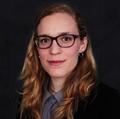 |
Karmele Olaciregui, Resident, Neurology Department, RWTH University Clinic Aachen Dr. Olaciregui, a 2014 alumna of the Summer Institute in Bioethics, is currently a third-year resident in Neurology. In 2009 she obtained her degree in physical therapy and in 2015 in medicine. Her research interests include brain imaging and epilepsy. She is part of the epilepsy research group at her institution, and is currently involved in a number of clinical research projects, chiefly in biomarkers in epilepsy. Currently her main project is focused on serotonin metabolism as a biomarker for SUDEP (sudden death in epilepsy) risk. Her other main area of interest is the intersection between bioethics and epilepsy diagnosis, treatment, and complications. |
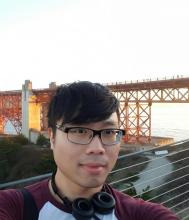 |
Haesoo Park, PhD Candidate in History of Science and Medicine, Yale University Haesoo is a Ph.D. candidate at Yale University, currently working on his dissertation project on the history of epigenetics from the interwar period to the post-genomic age. His primary research interest is in the 20th century history of the life sciences and applies an interdisciplinary approach drawing from medical anthropology, STS, and postcolonial feminism alongside historical methods. His works are driven by the fascinating ways that the question of “life itself” became the center of governmental calculations, ethical concerns, technoscientific practices, capitalist logic, and hopes of a better future. |
|
William J. Peace, Visiting professor, Syracuse University William J. Peace is a cultural anthropologist (PhD Columbia 1992) by training. Peace is both a scholar and advocate for disability rights and has published in a wide range of peer reviewed journals. He also maintains the widely read blog Bad Cripple. |
 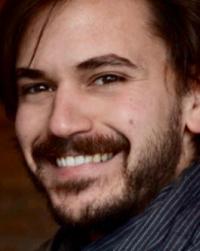 |
Santiago Peregalli, Medical Doctor; Trainee in Child and Adolescent Psychiatry and Psychotherapy, Hôpitaux Universitaires de Genève Santiago studied medicine at the Universidad de la Republica Oriental del Uruguay and the Universidad Europea de Madrid in Spain. Santiago is a licensed physician in Uruguay, Spain and Switzerland, where he is currently an advanced trainee in child and adolescent psychiatry and psychotherapy at the Hôpitaux Universitaires de Genève. Santiago is a graduate of the Yale Summer Bioethics Institute in the class of 2013. He received a scholarship by the UNESCO Chair in Bioethics of the University of Barcelona to study a master by research in Bioethics and Law with a research focus on gender, and adolescent agency and autonomy. Interview: Santiago Peregalli on Transgender Ethics and Medical Humanities |
 |
Matthew Riley, Lecturer, Yale School of Forestry and Environmental Studies and Yale Divinity School Matt is a Lecturer at the Yale Divinity School and Yale School of Forestry and Environmental Studies. Matt is also engaged as a Research Associate at the Forum on Religion and Ecology at Yale and he serves as Book Reviews Editor for the journal Worldviews: Global Religions, Culture, and Environment. Broadly speaking, Matt approaches bioethics from an interdisciplinary standpoint and he is interested in the intersection of environmental ethics, animal ethics, and religious perspectives on bioethics. |
 |
Naomi Rogers, Professor of History of Medicine, Yale School of Medicine; Professor of History and Professor of Women’s, Gender, and Sexuality Studies, Yale University |
 |
Aron Rose, Associate Clinical Professor of Ophthalmology and Visual Science and Assistant Clinical Professor of Nursing, Program for Biomedical Ethics, Yale School of Medicine Dr. Aron Rose is an Associate Clinical Professor at the Yale University School of Medicine and Assistant Clinical Professor at the Yale University School of Nursing. He is Chair of the Bioethics Committee for Cancer Diagnosis and Treatment in sub-Saharan Africa, a White House Initiative, and a faculty member of the Yale Interdisciplinary Center for Bioethics. He is also an Assistant Clinical Professor at the Frank H. Netter School of Medicine at Quinnipiac University. Dr. Rose is a devoted participant and organizer of programs which seek to combat blindness throughout the developing world. He has lectured and taught throughout the United States, Europe, Central Asia, India, the Far East, and Africa. The youngest invited faculty member of the prestigious international flying eye hospital Project Orbis in 1989, he went on to serve as Director of Residency Training at the Yale Department of Ophthalmology and Visual Sciences, where he designed and implemented the surgical training curriculum. He has served as section editor for Techniques in Ophthalmology, published widely in the peer review literature, consulted for new and emerging surgical technology, and acted as primary investigator for numerous clinical research projects. |
 |
Sally Satel, Lecturer in Psychiatry, Yale School of Medicine; W. H. Brady Fellow, American Enterprise Institute |
|
Jason Schwartz, Assistant Professor of Public Health and Assistant Professor of History of Medicine, Yale University |
|
Frederick Simmons, Assistant Professor of Ethics, Yale Divinity School |
|
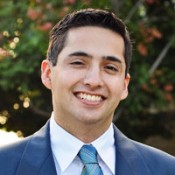 |
Roberto Sirvent, Associate Professor of Political and Social Ethics, Hope International University Roberto has broad interests in law and social movements, the ethics of patriotism, theories of resistance, prison abolition, and decolonial ethics. He has published in the areas of sport and militarism, love and justice, and prison hospice care. HIs current work explores the concept of failure as a philosophical category. |
 |
Santa Slokenberga, Postdoctoral Researcher in Medical Law, Uppsala University Santa holds a LL.D. in Medical Law and is a postdoctoral researcher at Uppsala University in Sweden. Her research focuses on the coexistence of the EU and Council of Europe in regulating health-related direct-to-consumer genetic testing. Currently, she is a legal expert in B3Africa project and works towards bridging biobank research in Europe and Africa. In addition, she has been teaching in the fields of EU law and medical law and since 2011. Prior to starting her doctoral studies, Santa Slokenberga worked as a legal advisor for Deloitte Latvia. Interview: Santa Slokenberga & Steve Latham |
 |
Jeff Stryker, Freelance Writer Jeff is a freelance writer and commentator on pubic radio, specializing in bioethical issues. He has been a frequent contributor to the New York Times and has published peer-reviewed articles on bioethics in the Hastings Center Report, the New England Journal of Medicine and JAMA. As a staff researcher and writer, he has contributed to reports on bioethics published by the Institute of Medicine, the National Commission on AIDS, the President’s Commission for the Study of Ethical Problems in Medicine and the Kaiser Family Foundation. He is a graduate of the University of Pennsylvania. |
 |
Karl Surkan, Lecturer in Women’s and Gender Studies, Massachusetts Institute of Technology Dr. K .J. Surkan has been teaching in the interdisciplinary field of women’s, gender, and sexuality studies for the past 25 years. Since 2005, he has been a lecturer at MIT, teaching topics courses in Gender and Media, Gender and Technology, and Sexual and Gender Identities, as well as feminist research methods and methodology. His fascination with bioethics emanates from his research interests in transgender health, social media health activism, and data sharing. Dr. Surkan serves on the board of the National LGBT Cancer Network and is a Participant Representative to the Steering Committee of the All of Us Research Program, an NIH precision medicine initiative. Interview: Karl Surkan on Health in Social Media and Precision Medicine |
 |
Shizuko Takahashi, Physician and Genetic Counselor in Obstetrics and Gynecology, University of Tokyo School of Medicine; Visiting Researcher, Center for Biomedical Ethics and Law, University of Tokyo Graduate School of Medicine Shizuko received BA from Reed College in Molecular Biology and Fine Arts in 1997. She then attended medical school at Tokai University, School of Medicine (Isehara, Japan), and obtained her MD in 2002. After residency at the Japanese Red Cross Hospital and the University of Tokyo Hospital, Department of Obstetrics and Gynecology, she studied at the University of Tokyo, Graduate School of Medicine in both the Department of Obstetrics and Gynecology, and the Center for Biomedical Ethics and Law. She received her PhD in 2010 and her dissertation was on the decision-making process of fate of frozen embryos for infertile women in Japan, focusing on the cultural implications on how embryos are perceived. In addition, after the great eastern earthquake in 2011 in Japan, she has been involved in disaster medical ethics. Her works have been published in BMC Medical Ethics, Lancet, and BMJ, and she has given lectures at the University of Tokyo. She taught at the Sherwin B. Nuland Summer Institute in Bioethics last year. Interview: Shizuko Takahashi on Bioethics of the Embryo |
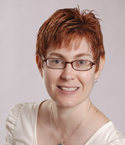 |
Ruth Tallman, Associate Professor of Philosophy, Barry University Ruth Tallman is an assistant professor of philosophy at the University of Wisconsin-Whitewater. She holds a PhD in philosophy from the University of Oklahoma. She coaches her school’s Ethics Bowl team, and was the scriptwriter for Crash Course: Philosophy. Her current research focuses on the physician-patient relationship, exploring issues of noncompliance and shared decision-making. |
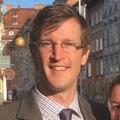 |
Daniel Tigard, Postdoctoral Research Fellow, Human-Technology Center, RWTH Aachen University Daniel studied philosophy for his BA at the University of Washington–Seattle, MA at Brandeis University, and PhD at Tulane University. He is currently a postdoctoral research fellow in applied ethics at RWTH Aachen University, in Germany, where he works on moral responsibility in emerging technology. Along with issues concerning responsibility and moral conflicts, his writings address topics such as clinical research ethics and moral distress among healthcare professionals. When not in Aachen, Daniel resides in Vienna, Austria, with his wife and Sir Francis Bacon, their cat. Interview: Daniel Tigard on Moral Distress in Medicine |
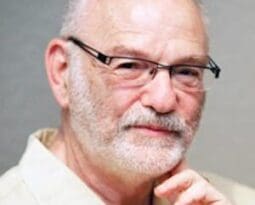 |
Wendell Wallach, Consultant and Scholar, Interdisciplinary Center for Bioethics, Yale University; Senior Advisor, Hastings Center |
|
John H. Warner, Chairman and Avalon Professor in the History of Medicine, Yale School of Medicine; Professor in the American Studies Program and Department of History, Yale University |
 |
Kavot Zillen, Postdoctoral Researcher in Law, Stockholm University Kavot holds a LL.D. in Medical Law and is a postdoctoral researcher at Stockholm University in Sweden. Her position involves research and teaching in the field of administrative, medical law, and human rights law. Prior to starting her LLD, Kavot worked as a legal expert at the Swedish Medical Responsibility Board and at The National Board of Health and Welfare, under the Ministry of Health and Social Affairs. |

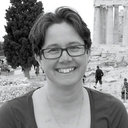


.jpg)
